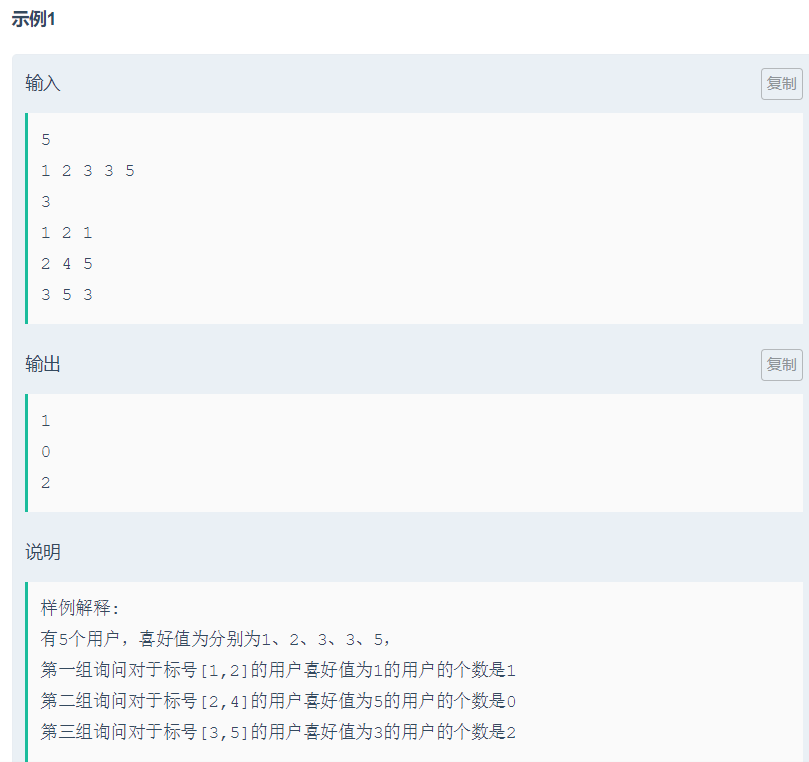

提示:在算法处理过程中,未必就要将出现在前面的作为关键字检索。比如本题,非得先去检索范围,再去判断范围中key的个数。反其道而行,把输入的数字当作关键字,组成Map
package test; import java.util.ArrayList; import java.util.HashMap; import java.util.Scanner; public class Main6 { /* * 相当于在输入的权值数组的下面,进行序号装入 * 1 2 3 3 5 -> * 1:1 * 2:2 * 3:3,4 * 4:5 * 入此进行判断范围 * * * */ public static void main(String[] args) { // TODO Auto-generated method stub Scanner sc=new Scanner(System.in); int n=sc.nextInt(); HashMap<Integer,ArrayList<Integer>> hm=new HashMap<Integer,ArrayList<Integer>>(); for(int i=0;i<n;i++) { int temp=sc.nextInt(); if(hm.containsKey(temp)) { hm.get(temp).add(i); }else { ArrayList<Integer> al=new ArrayList<Integer>(); al.add(i); hm.put(temp,al); } } int m=sc.nextInt(); int b[]=new int[m]; for(int j=0;j<m;j++) { int low=sc.nextInt()-1; int high=sc.nextInt()-1; int key=sc.nextInt(); if(!hm.containsKey(key)) { b[j]=0; }else { b[j]=getNum(low, high,hm.get(key)); } } for(int j=0;j<m;j++) { System.out.println(b[j]); } sc.close(); } public static int getNum(int low ,int high,ArrayList<Integer> al) { int i=0; int j=al.size()-1; //如果list中的最小值比你范围中最大值还大,例如你查找[1,2] 3 //显然al.get(3)中最小的也是三,所以里面定然无值,返回0.同理最小值大于它最大值也是返回0.比如2 4 5肯定返回0 if(al.get(i)>high || al.get(j)<low ) { return 0; }else { while(al.get(i)<low || al.get(j)>high) { if(al.get(i)<low) i++; if(al.get(j)>high) j--; } return j-i+1; } } }